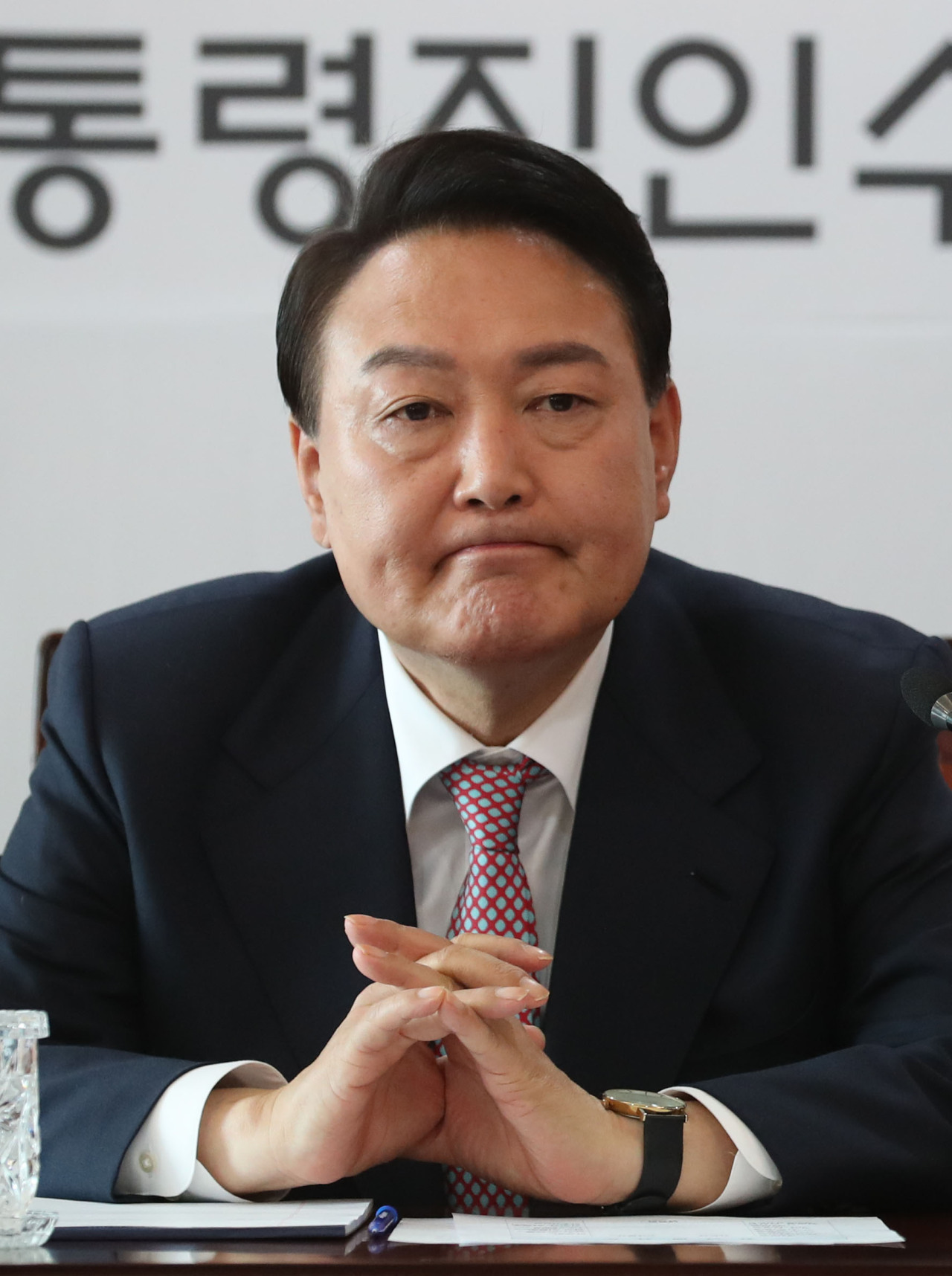[Newsmaker] [Reporter's Notebook] Did presidential vote worsen gender conflict in Korea?
By Yoon Min-sikPublished : March 25, 2022 - 14:56
In the aftermath of Yoon Suk-yeol winning the closest presidential race in history, disdain from the female population toward him has left many suspecting that his victory has exacerbated the country’s gender conflict, particularly among the younger population.
The National Police Agency on Monday ordered the Seoul cyber police to investigate a series of postings at an online community, discussing possible assassination of the president-elect. The websites in questions include female-dominant sites theqoo.net and Women’s Generation.
In Korea, there are several online communities whose members are dominantly male or female, characterized by clashes over political stances and feminism.
Most members of female-dominant websites showed support for Lee, reacting to Yoon’s “anti-feminist” stance, including a pledge to abolish the Ministry of Gender Equality and Family. Yoon has publicly claimed that structural gender discrimination longer exists in Korea.
The National Police Agency on Monday ordered the Seoul cyber police to investigate a series of postings at an online community, discussing possible assassination of the president-elect. The websites in questions include female-dominant sites theqoo.net and Women’s Generation.
In Korea, there are several online communities whose members are dominantly male or female, characterized by clashes over political stances and feminism.
Most members of female-dominant websites showed support for Lee, reacting to Yoon’s “anti-feminist” stance, including a pledge to abolish the Ministry of Gender Equality and Family. Yoon has publicly claimed that structural gender discrimination longer exists in Korea.

Faced with a police probe into the supposed assassination plot, some members of Theqoo.net attempted to drag in FM Korea, a predominantly-male website that they blamed for starting the whole thing.
“I asked (the police) why the media reports are only about us when the original thread started in FM Korea, and we just ‘mirrored’ it, and they told me the website could be probed too, if there is proof,” an unidentified member of Theqoo.net wrote, with replies of approval from nearly a 100 members. “Mirroring” is a common practice on feminist websites in Korea, and involves aping anti-feminist or otherwise hostile comments, typically with the target of criticism changed.
None of the members have yet shown evidence that their site’s posting was a meme that started on FM Korea, but the website did put up a notice warning male-dominant website members not to post argumentative or critical postings.
“Some male-dominant communities tend to target us and insist on ridiculous claims that won’t be accepted in female-dominant communities. ... Those who insist on these type of disturbance and targeting female-dominant communities can be blocked without warning,” it read.
Even before the election, gender-based conflict had been claiming victims in the most brutal ways. The aforementioned FM Korea, DC Inside and other male-dominant communities had been blamed for the suicide of YouTuber Cho Jang-mi in February.
Cho had been a target of cyber bullying when she was accused of being a feminist, after she used gestures and words unique to radical feminist online communities. The bullying persisted despite Cho denying links to the controversial communities or being a feminist in general.
Feminism has become a virtual scarlet letter for celebrities. A 2021 survey by local Hankuk Ilbo showed that 62.7 percent of the male population feel resistance to feminism. Ironically, 42.8 percent of the female population also felt the same, with only 41.7 percent saying they have no ill-feelings toward it.
This may indicate that such negative reaction toward how feminism is utilized in the Korean society, particularly by the politicians, rather than the idea itself.
On the coattails of the 2021 by-elections, in which self-proclaimed feminist President Moon Jae-in’s Democratic Party of Korea suffered a bitter defeat, there was a widespread complaints toward the ruling party from young men about the party’s approach to feminism. They voiced complaints that they were being stigmatized for gender-related problems that the older generation created.
“Why do 20-something kids who play online games at home suddenly become (labeled) sex offenders? That’s why they come out to vote. ... Feminism? We’ll see about that” said Twitter user Kyung Mo-son, in a tweet that got 307 likes.
A sense of deprivation has led to numerous petitions to Cheong Wa Dae and the National Assembly calling for women to be drafted into the military as well, with men saying that they are unfairly penalized by being mandated to serve two years. In 2021, the presidential office responded by saying that drafting women was a “multifaceted issue that needs to be sufficiently discussed.”
But the political left has long been losing the support of young men, with whom Moon is unpopular. This was apparent even before he took office, when he got only 37 percent of 20-something men’s votes in the 2017 election, which was lowest support he got from any group except the over-60s, who usually vote conservative.
As of May 10, at the helm of the country will be the man who called himself “Suk-yeol-hyeong (hyeong is a word Korean men use to call older men who they are friendly with).”
His lack of a majority backing in the National Assembly makes it unclear how much of his controversial “anti-feminist” pledges -- he also promised to crack down on false accusations of rape -- will be carried out, but weeks following his narrow win shows gender conflict in the country has not relented in the slightest after the closest, and possibly the most divisive presidential election in history.






![[KH Explains] How should Korea adjust its trade defenses against Chinese EVs?](http://res.heraldm.com/phpwas/restmb_idxmake.php?idx=644&simg=/content/image/2024/04/15/20240415050562_0.jpg&u=20240415144419)












![[Today’s K-pop] Stray Kids to return soon: report](http://res.heraldm.com/phpwas/restmb_idxmake.php?idx=642&simg=/content/image/2024/04/16/20240416050713_0.jpg&u=)